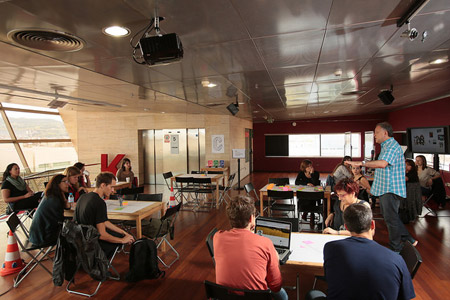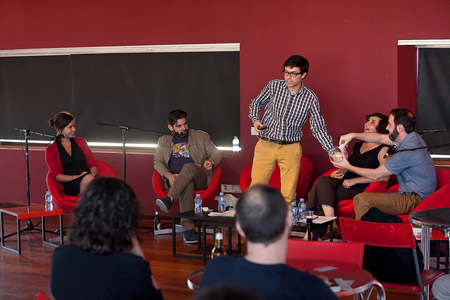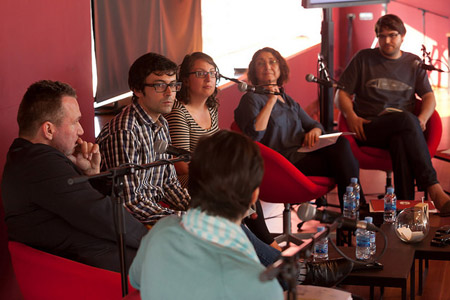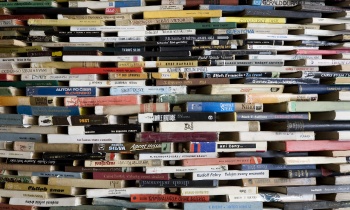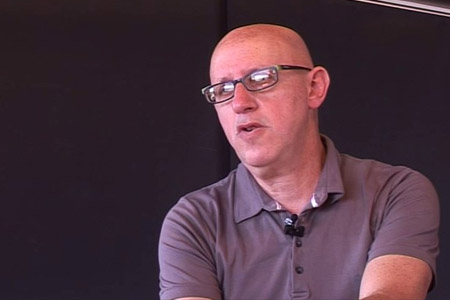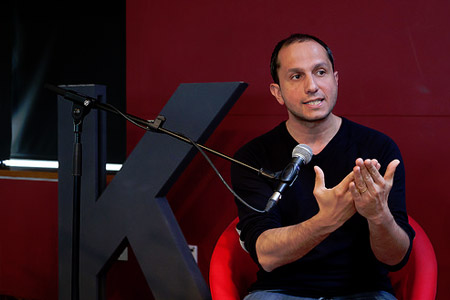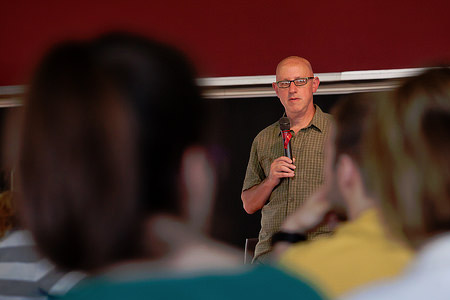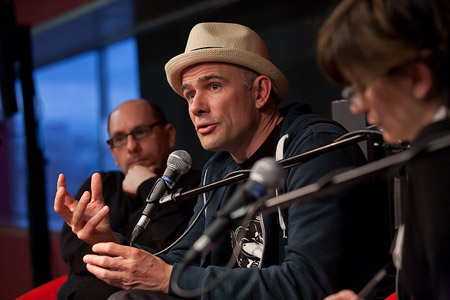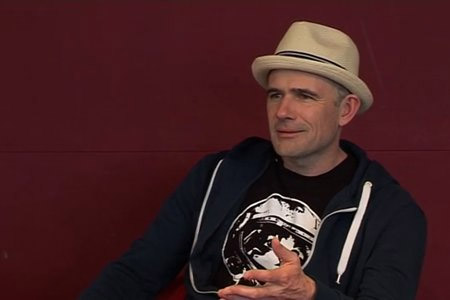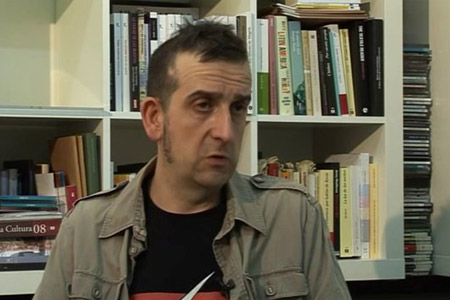Kosmopolis. Continuous Programme 2014
Literary activities series
Kosmopolis 2014. Transmedia Narrative Design
Presentation of the workshop projects
The transmedia narrative design workshop, conceived and taught by Carlos A. Scolari, will be based on Design Thinking dynamics, following a process that runs from the consideration of objectives to the final presentation, and includes phases of brainstorming. The workshop ...
Kosmopolis 2014. Transmedia Narrative Design
Workshop with Carlos A. Scolari
The transmedia narrative design workshop, conceived and taught by Carlos A. Scolari, will be based on Design Thinking dynamics, following a process that runs from the consideration of objectives to the final presentation, and includes phases of brainstorming. The workshop ...
Kosmopolis 2014. Mirador Kosmopolis: New Writers
Dialogue with Jenn Díaz, Marina Espasa, David Gálvez and Yannick Garcia
Writing in the Present: New Writers. The young writer is inexperienced and has doubts. The new writer makes a statement and wants to be heard. Some of the authors that have recently joined our literary scene will discuss their proposals: their models, their stylistic position, ...
Kosmopolis 2014. Mirador Kosmopolis: Unknown classics
Dialogue with Laura Baena, Valeria Bergalli, Oscar Van Gelderen, Daniel Osca and Muge Sökmen
The Mutant Canon: Publishing Unknown Classics Backing the publication of unknown classics is one of the options that a publisher can choose nowadays to earn a prestigious position among readers. To what extent can the contemporary publication of classics modify the literary canon? Can a classics publisher create trends? What literatures – large or small – remain to be discovered in Europe? A dialogue between publishers, where we try to answer these and other questions related to the construction of catalogues that challenge the present with past titles. ...
The Art of Creating New Readers
Jordi Nopca
The literary canon is a compendium of works that overcome the oblivion of time and continue to be read. In the operation of keeping alive books that are not strictly current – by offering them to new readers, who make new interpretations of them – a fundamental role is played by ...
Neil Gaiman
Neil Gaiman is a creator of science fiction and fantastic stories that become novels, comics, films, and plays. His world is inhabited by eternal and terrible creatures or by children who exchange their father for two coloured fish. We spend an evening with this author of exceptional imagination ...
Interview with Sergio Chejfec
Reflection and analysis play a prominent role in the writing of Sergio Chejfec, an author who relates the narrative of a novel with the stream of thought.
Kosmopolis 14. Narrating Google. The screen in words
Lecture by Jordi Carrión
How has Google affected cinema, literature, photography, and contemporary art? Based on his experience as the author of Crónica de viaje (Aristas Martínez, 2014), an artist’s book composed of supposed Google screens, Jorge Carrión reflect on the ways the search engine has changed our ways of thinking and on how the art of our era has versioned, intervened, occupied, or simply represented it.
Sergio Chejfec
Narrating Google. Writing workshop
How has Google affected cinema, literature, photography, and contemporary art? The Internet and its evolution through refined browsers and search and representation systems have changed our sensitivity towards things in general and the territory in particular. The cartography of the physical ...
Mark Z. Danielewski
House of Leaves: Cult literature
What would happen if a house were larger on the inside than on the outside? This is the paradox that structures House of Leaves (La casa de hojas), the debut novel of American author Mark Z. Danielewski. With him, we talk about houses that grow inside, books that expand, hypertexts ...
Interview with Javier Calvo, Robert Juan-Cantavella and Ana S. Pareja
Interview with Javier Calvo (translator), Robert Juan-Cantavella (layout design) and Ana S. Pareja (editor) on the making-of the publishing process and the most interesting aspects of the spanish edition (Alpha Decay and Pálido Fuego Ed.) of the novel House of Leaves, by Mark Z. Danielewski.

